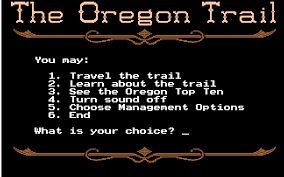
These days, gamefication makes me feel cynical. Educational technology has some principles rooted with integrity, especially when educators are the designers of the media to be used with intention by learners. How many “educational” games are developed now where teachers who actively teach have the final say? Teachers now are too busy, having been given responsibilities that go far beyond their subject expertise. Technology has become so complex that teachers should just let the developers do the designing, or is that really what educational technology companies want teachers to believe? The same might be said for the way publishers are treating scholars and researchers in the field of academic literature.
The USC libraries’ research guide on Evaluating Research Sources: Reading Scholarly Articles has a much more intriguing subtitle than its main heading (i.e. “Tips on evaluating popular and scholarly articles, bias and propaganda in publishing, impact metrics and predatory publishing.”) It was actually more interesting to click on the tabs related to this subtitle and read that content than it was to read the general tips that were repeated in several other articles. To me, the idea of identifying bias, propaganda, analyzing impact metrics, and watching out for publishers in it for the money seem to be precursory considerations before getting into the content of a potential academic read.
One article was intentionally misrepresented by the omission of the complete title which should have read “Conservation Biology Environmental Studies 319: Critically Reading Journal Articles.” This prompted a further cursory investigation as to the source of this article which turned out to come from a fairly low-ranked liberal arts college in Pennsylvania called Lycoming. The content of the article appeared to follow the news print media standard grade 6 reading level and provided little insight beyond what common sense would dictate to the average first-time reader of such academic literature.
Another article published through the largest academic social networking site, namely ResearchGate (that has, by the way, infringed publisher copyright on almost half of its uploaded papers according to Wikipedia) provides one good tip even though the sentence begins with a conjunction, “And to be able to distinguish between good and bad interpretations of research, you have to be willing and able to read the primary research literature for yourself.” This is a given in evaluating any kind of journalistic or “fact-finding” writing. It is akin to doing a background check on a prospective client or employee, but in terms of building a body of literature on a subject, the question of balance between finding supportive, related literature and literature that is related and popular becomes an important distinction in an age where academic publishing online is opening up to such sites as ResearchGate and becoming accessible to all, including those who can use a proxy to fake using an academic institution’s email in order to “join the club” of published academics.
Sage researchmethods published a book Clinical Research in Mental Health with an article titled “How to Read and Critically Evaluate Research Articles” in which the authors admit “There are probably as many approaches to reviewing articles with a critical eye as there are people who review articles.” This effectively eliminates the authors’ own approach to reviewing articles in terms of its value over other approaches. The article does not contain any surprises and reiterates the need for skepticism “It is important to keep in mind throughout your reading that just because an idea is published does not mean that it cannot be criticized.” This is the whole essence of academic research. It is published in order to stand against the scrutiny of peers and other academics who might interpret and glean new insight from the content as a result of varied analyses and criticisms. Quoting previous authors, the article may very well have contained much of the same content had it been written for those wanting advice on how to write an academic research article.
Perhaps the most infuriating aspect of academia is when scholars set out to create unique definitions of seemingly innocuous words using convoluted terminology in an attempt to sway opinion about a theoretical construct. The Clarke-Kozma debate is one such example of academic scholarship that has essentially focused on intellectual one-up-man-ship. The argument originates in published articles and the articles themselves become a platform for debate that becomes an entertainment of sorts for the intelligentsia replete with the self-preening of erudition that ultimately dissolves the learning opportunities of the subject in question into a contest of wits. It has snowballed to include other academics in a feeble attempt to keep the debate alive in a world of rapid technological change. It seems as though Clarke and Kozma were too consumed by their debate to notice that technology was embedding itself into the fabric of every part life, including education. William Shatner even bought into the potential of technology as a tool for learning.
Gamefication of learning is very old. Minnesota Educational Computing Consortium’s 1974 game The Oregon Trail is a testament to that. The debate over media’s effect or not on learning is not worth the expense as it will always sway back and forth between opposing views and theories just as the ancient debate over whether watching violence in the theatre/media begets violence or as Aristotle posited that performed violence is a catharsis. Research articles can certainly contain a healthy measure of criticism of other theories, but should not devolve into a diatribe of argument that leaves one wondering, “What was the point of that article?”


Leave a Reply